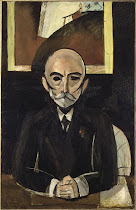 63%
63%Not Recommend
A quality idea for a book but you don't need to read it. A summary is as effective. Tough to say since the writing is articulate but the authors didn't give me enough credit.
Is Steven Levitt impersonating Bill Gates or vice versa? Do smart people get together and agree what to look like?
The book has an aggressive opening that is packed with interesting ideas. Unfortunately it's the attention-grabbing introduction and the rest of the book repeats itself. It's about the "genius" economist Stephen Levitt. The guy is great. He has an interest in crime and an economist's reliance on numbers to tell the story.
It connects Roe vs. Wade, the landmark American case about the right to have an abortion, with the decline in crime rate in the United States. The authors claim the connection caused a lot of controversy because economists don't care about politics only what the data tells them. The argument is that most reported criminal behaviour, especially drug trafficking, robbery, and murder, is from people in poverty. Since poor people were having less babies (read: more abortions) there was less of a population base for criminals to appear.
There. I summed up the idea almost as nicely as they do at the start of the book. Unfortunately, the book continues and they take 100 pages to say the same thing again. That might have been interesting but the data and analysis are given in such a watered-down, user-friendly way that it was boring.
The rest of the book tries to be a highlight reel of social economic theories. That is, using data and an understanding of incentives to explain cheating in sumo wrestling as opposed to interest rates. They coin the phrase "freakonomics" to create a theme for the book: turning an economist's eye to untraditional problems. They might as well have called it "thinking". The only topics covered in the book are: how the funding model in the US encourages teachers to cheat for their students on standardized test. Why sumo wrestlers occasionally let each other win. Abortion's effect on crime. And how rich people set the trends in first names.
I'm glad I read this book since I trust the intelligence of the friend who recommended it to me so, bare minimum, I get to hear what he liked about it.



1 comment:
Well now all you have to do is read: http://freakonomics.blogs.nytimes.com/
I love freakonomics. Especially the baby names part.
Post a Comment